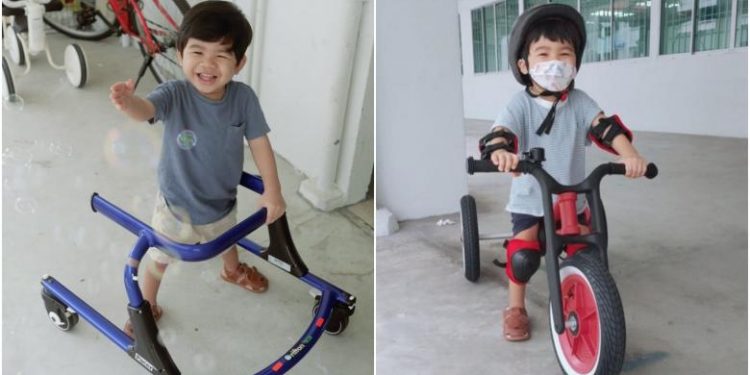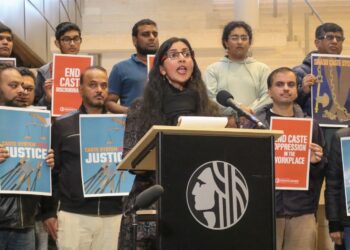The money was raised for two-year-old Devdan Devaraj, who was suffering from Spinal Muscular Atrophy, a debilitating neuromuscular disease.
A two-year-old boy of Indian origin in Singapore, is on his way to recovery from a rare neuromuscular disease and is learning to walk thanks to the help of Singaporeans who donated overwhelmingly for his treatment.
They donated close to 3 million Singapore dollars or US $2.15 for little Devdan Devaraj.
Devdan’s parents, Dave Devaraj and his Chinese-origin wife Shu Wen, both 33-years-old, have expressed their gratitude for their son’s recovery.
“A year ago, my husband and I couldn’t even picture him walking. At that point, even standing was an issue. So, to see him walk now and even ride a tricycle with some assistance is such a miracle to us,” Shu Wen Devaraj, an interior designer by profession told The Straits Times on Wednesday.
“We cannot thank the public enough for their donations and we will always be grateful to them. I hope they know that their kindness has changed Devdan’s entire life,” she added.
The treatment included Zolgensma, said to be one of the most expensive drugs found in the market at SGD2.9 million.
The donations poured in within 10 days in August last year when about 30,000 people donated for Devdan’s treatment through a crowdfunding charity organisation called Ray of Hope.
General manager of the organisation, Tan En, said the sum was the largest Ray of Hope had ever raised for a single beneficiary. It amounted to almost two-thirds of the total of all the donations it had received in 2021. Ray of Hope had raised SGD 4.4 million (USD 3.3 million) from about 214 different fund-raisers through all of last year.
According to Tan, Ray of Hope usually raises on average between SGD2,000 to SGD3,000 per fund-raiser.
“To my knowledge, I believe it’s (the contribution for Devdan) among the largest for a single fund-raiser in Singapore,” he told The Straits Times.
Soon after his birth, Devdan had been diagnosed with spinal muscular atrophy (SMA) a rare genetic disease caused by a mutation in the survival motor neuron 1 (SMN1) gene, that leads to muscle weakness that worsens over time. Children with SMA have trouble performing essential functions of life. If left untreated, it often leads to paralysis, breathing difficulties and could lead to death within months for babies born with Type I, the most serious form.
Devdan received his dose of Zolgensma in September last year at the National University Hospital. it is given as a one-time infusion into a vein. The therapy uses a virus to provide a normal copy of the SMN1 gene to babies born with a defective gene.











